
Chris Dashiell names his favorite films that were released last year.
There were some miraculous films in 2018. I’ve learned to be grateful, and not to take these things for granted.
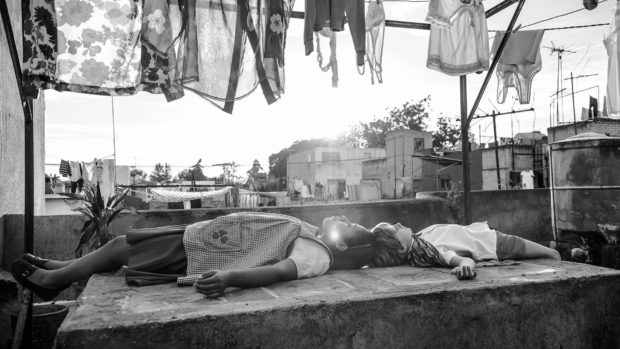 Roma (Alfonso Cuarón).
Roma (Alfonso Cuarón).
Cuarón’s masterpiece is inspired by the story of his own family during one tumultuous year in Mexico City in the early 1970s. But he tells it from the point of view of the family’s live-in housekeeper and nanny Cleo (Yalitza Aparicio). In a way, it’s a tribute to a common figure that usually goes unacknowledged: the working people of color, usually of native origin, who carry the predominately white middle and upper class by their labor. The proximity of servant and employer is the basic fact underlying the story, but Cuarón also respects the inherent distance involved. Cleo has had to leave her village and her family in order to make a living, and although she is relatively well treated, there is still a basic separateness and absence in her situation. The texture, the experience of this beautiful film is the day-to-day life of Cleo, both in her private, separate existence and with the family that employs her.
What sets the picture apart is that the film’s style and techniques are essential parts of the picture’s meaning for audiences to absorb. The constant use of extreme wide-lens shots with long takes, within which the characters move and interact, along with the exquisite black and white photography, is meant to call attention to the film’s craft as well as its story. Audiences sense this and respond do it, both as visual beauty and evocation of life’s struggle. Rather than the traditional sequence of scenes along a linear timeline, we are immersed in the moment. The past is made present with an intensity that seems magical.
Zama (Lucrecia Martel).
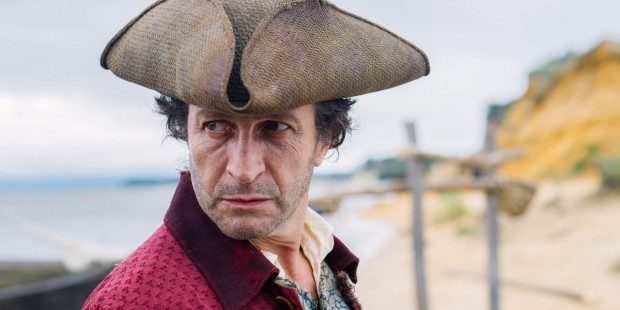 Martel’s first period film, and first literary adaptation, finely displays her unique style. Don Diego de Zama (Daniel Giménez Cacho), is an 18th century colonial magistrate in an unnamed country in South America. After years of toil in this backwater of the Spanish empire, Zama longs to rejoin his family, but all his efforts to get transferred, including attempting to seduce the wife of a local official, go for naught. He thinks of himself as Spanish, but he was born in the New World, so other Spaniards see him as beneath them. As a judge he’s relatively fair, and we sympathize with his despair and weariness, but from the attitudes of blank obedience and indifference he receives from the natives, servants, and slaves, we see how the uprootedness of the colonizer poisons every aspect of life.
Martel’s first period film, and first literary adaptation, finely displays her unique style. Don Diego de Zama (Daniel Giménez Cacho), is an 18th century colonial magistrate in an unnamed country in South America. After years of toil in this backwater of the Spanish empire, Zama longs to rejoin his family, but all his efforts to get transferred, including attempting to seduce the wife of a local official, go for naught. He thinks of himself as Spanish, but he was born in the New World, so other Spaniards see him as beneath them. As a judge he’s relatively fair, and we sympathize with his despair and weariness, but from the attitudes of blank obedience and indifference he receives from the natives, servants, and slaves, we see how the uprootedness of the colonizer poisons every aspect of life.
Martel gives us scenes that start in the middle, studied indirection in the editing and camera movement, and an evenness of tone that conveys the sense of being stranded in a meaningless job day after day. The darkness of the makeshift dwellings, the dusty uniforms of the Spanish officials, the ever present horses, mules and llamas blithely coexisting in the same living spaces—all this is beautifully conveyed, and the digital color photography by Rui Porças is absolutely stunning. An atmosphere is carefully created, an environment in which one’s awareness is heightened, and by which we perceive the unspoken aspects of relationships.
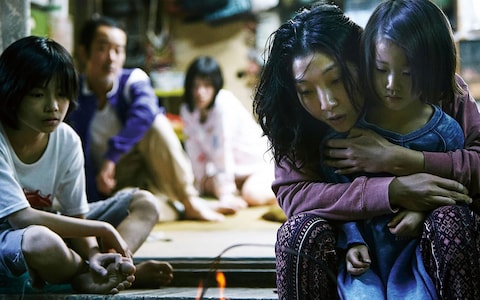 Shoplifters (Hirokazu Koreeda).
Shoplifters (Hirokazu Koreeda).
Koreeda has always had a great talent for exploring issues of family and children, and I wondered if he could go any further. I needn’t have. Shoplifters brilliantly challenges assumptions about family and society. The family in the story lives in a ramshackle house, surviving through shoplifting and other kinds of theft. Over time we realize that these people are not actually related by blood, but have created their own kind of family out of a shared need for love and survival. When they adopt a little girl whom they find abandoned and abused, there are unexpected consequences.
Koreeda maintains a remarkable balancing act. Depicting conditions of squalor and (at best) moral ambiguity, he never indulges in pity or revulsion. The humor is natural and unforced. Shoplifters refuses to look down on any class of human being, however despised. It’s a film of compassion and respect.
Cold War (Pawel Pawlikoski).
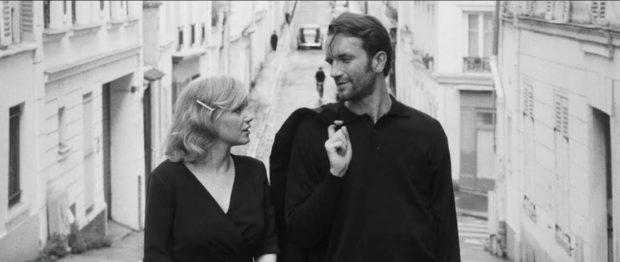 The story of a romance made almost impossible by the fact that it begins in communist Poland in the 1950s. A singer (Joanna Kulig, devastating), and the musician and conductor who discovers her (Tomasz Kot), careen passionately and recklessly towards and away from each other on both sides of the “iron curtain.” Music permeates Cold War—the folk music of Poland, and its reimagining as jazz, reflecting the conflict and the passion of lovers caught between two ways of life. As in his previous award-winning film Ida, gorgeous black and white photography indelibly evokes an era. This is a political and an historical film, that doesn’t need to explain the politics or the history—you understand it all from the damage inflicted on its characters’ hearts.
The story of a romance made almost impossible by the fact that it begins in communist Poland in the 1950s. A singer (Joanna Kulig, devastating), and the musician and conductor who discovers her (Tomasz Kot), careen passionately and recklessly towards and away from each other on both sides of the “iron curtain.” Music permeates Cold War—the folk music of Poland, and its reimagining as jazz, reflecting the conflict and the passion of lovers caught between two ways of life. As in his previous award-winning film Ida, gorgeous black and white photography indelibly evokes an era. This is a political and an historical film, that doesn’t need to explain the politics or the history—you understand it all from the damage inflicted on its characters’ hearts.
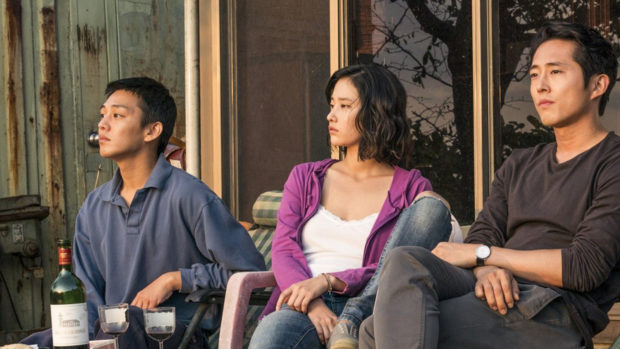 Burning (Chang-dong Lee).
Burning (Chang-dong Lee).
It begins as a weird triangle, with a loner named Jong-su (Yoo Ah-In) falling for an elusive, uninhibited mystery woman (Jeon Jong-seo), only to be intruded upon by an affluent, guarded stranger (Steven Yuen). The film then enters something like suspense thriller territory, but always with this difference—Lee grounds the film in the subjective, the inward tension of his diffident, conflicted main character, Jong-su. Rage is suppressed, the cruelty and disappointments of life are pushed down and out of conscious awareness until, it seems, some kind of terrible explosion must occur. Burning takes us to an unexpectedly profound place.
We the Animals (Jeremiah Zagar).
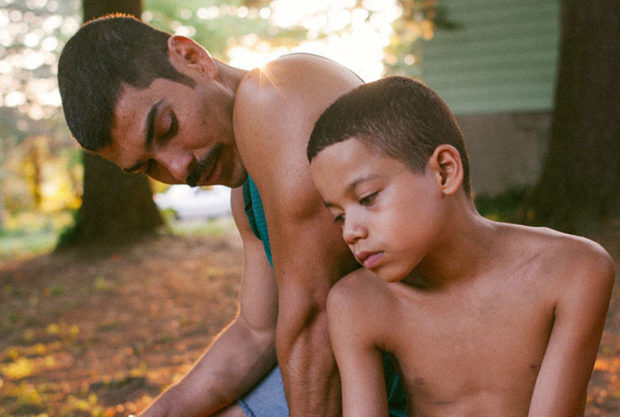 Three boys live in the shadow of family conflict. Their Puerto Rican father abuses their Anglo mother. His abandonment and her trauma force them to fend for themselves, like wild animals. The boys have a close bond—they’re always together and sleep on the same large bed. But we gradually see that the youngest, Jonah, is a little different. The picture suffused with the glow of childhood memory, where everything feels present and immediate. Zagar’s lyrical style is outstanding—Jonah’s drawings become animated, acting out the boy’s private thoughts and fantasies in beautiful, mysterious patterns. This is a film of intimate tragedy, burning innocence away.
Three boys live in the shadow of family conflict. Their Puerto Rican father abuses their Anglo mother. His abandonment and her trauma force them to fend for themselves, like wild animals. The boys have a close bond—they’re always together and sleep on the same large bed. But we gradually see that the youngest, Jonah, is a little different. The picture suffused with the glow of childhood memory, where everything feels present and immediate. Zagar’s lyrical style is outstanding—Jonah’s drawings become animated, acting out the boy’s private thoughts and fantasies in beautiful, mysterious patterns. This is a film of intimate tragedy, burning innocence away.
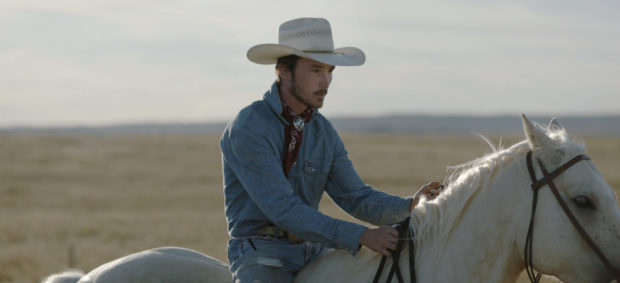 The Rider (Chloé Zhao).
The Rider (Chloé Zhao).
This is based on the true story of a young rodeo hotshot, a Lakota from the Pine Ridge Reservation in South Dakota, prevented from doing what he loves after falling off a bucking bronco at a rodeo and suffering a severe head injury. The main character is played by Brady Jandreau, and although Zhao has mixed dramatic invention with true events, Jandreau and all the other people in the film are basically playing themselves. The Rider examines what it’s like to lose that which seems to give us the only meaning we have. How can we grieve? What will it take to make us let go of the dream, and is it worth it? Zhao also explores what manhood means, and how different it is from what we’ve been taught.
Let the Sunshine In (Claire Denis).
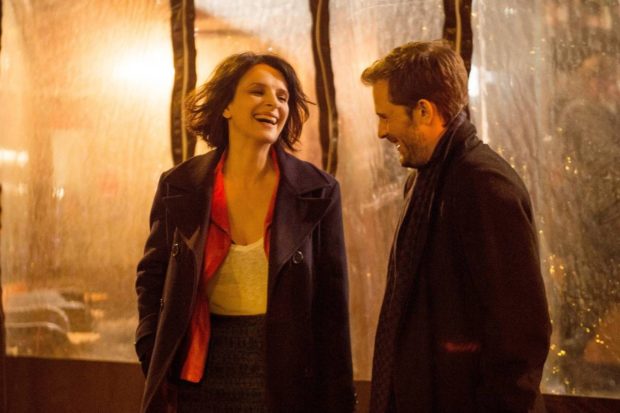 The literal translation of the title is “The beautiful sun inside”: a clue, if you must have one, to the meaning of Denis’ ambiguous tone poem. A conflicted middle aged woman (Juliette Binoche) wants to find the right man, and is repeatedly disappointed—surely this reflects a fairly common experience, but one that is nevertheless rarely made into the subject of a movie. Denis’ style is very clear and matter-of-fact, not attempting to stir up an undue sense of drama; letting the action and dialogue speak for themselves. One might not realize until later that the picture has skillfully suspended the sense of time. It’s a subtle woman-centered film, quietly amusing, with a refreshing lack of moralism.
The literal translation of the title is “The beautiful sun inside”: a clue, if you must have one, to the meaning of Denis’ ambiguous tone poem. A conflicted middle aged woman (Juliette Binoche) wants to find the right man, and is repeatedly disappointed—surely this reflects a fairly common experience, but one that is nevertheless rarely made into the subject of a movie. Denis’ style is very clear and matter-of-fact, not attempting to stir up an undue sense of drama; letting the action and dialogue speak for themselves. One might not realize until later that the picture has skillfully suspended the sense of time. It’s a subtle woman-centered film, quietly amusing, with a refreshing lack of moralism.
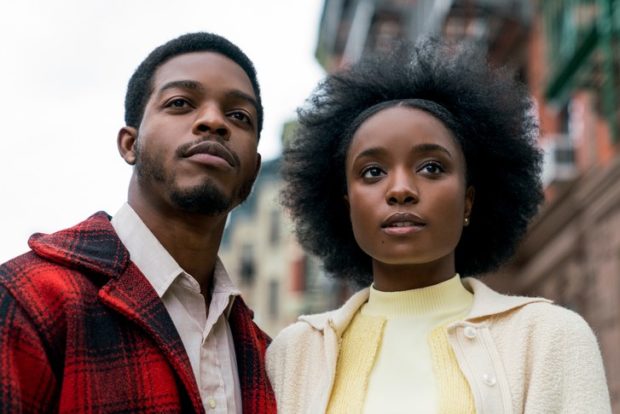 If Beale Street Could Talk (Barry Jenkins).
If Beale Street Could Talk (Barry Jenkins).
The most elemental story—two young people (KiKi Layne and Stephen James) deeply in love—portrayed against the complex background of opposing forces, from family and from racism as a social condition. Jenkins’ pacing and narrative emphases are designed to upend dramatic expectations. The picture is rich with close-ups—the human face is Jenkins’ window into truth. The camera is also in love with the city—even though it can be a place of deprivation and misery, love illumines New York with its light.
Madeline’s Madeline (Josephine Decker).
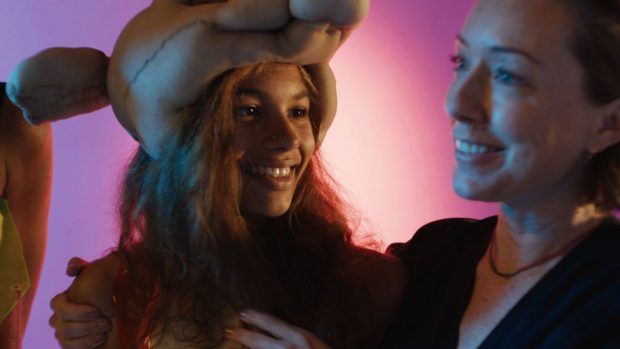 Madeline (Helena Howard) a young member of an experimental theater group, pushes against her overprotective mother (Miranda July) while turning desperately for support to her drama teacher (Molly Parker). Decker employs an unusually subjective style. Madeline’s Madeline is about self reflection; it’s an experimental film about experimental theater, an examination of self-examination, and in the end, a young woman’s coming to a sense of herself.
Madeline (Helena Howard) a young member of an experimental theater group, pushes against her overprotective mother (Miranda July) while turning desperately for support to her drama teacher (Molly Parker). Decker employs an unusually subjective style. Madeline’s Madeline is about self reflection; it’s an experimental film about experimental theater, an examination of self-examination, and in the end, a young woman’s coming to a sense of herself.
And here are the marvelous B-sides:
Leave No Trace (Debra Granik)
First Reformed (Paul Schrader)
At Eternity’s Gate (Julian Schnabel)
November (Rainer Sarnet)
I Am Not a Witch (Rungano Nyoni)
The Death of Stalin (Armando Ianucci)
Blindspotting (Carlos López Estrada)
The Favourite (Yorgos Lanthimos)
Todo lo Demás (Natalia Almada)
Eighth Grade (Bo Burnham)
Have a great year at the movies!

